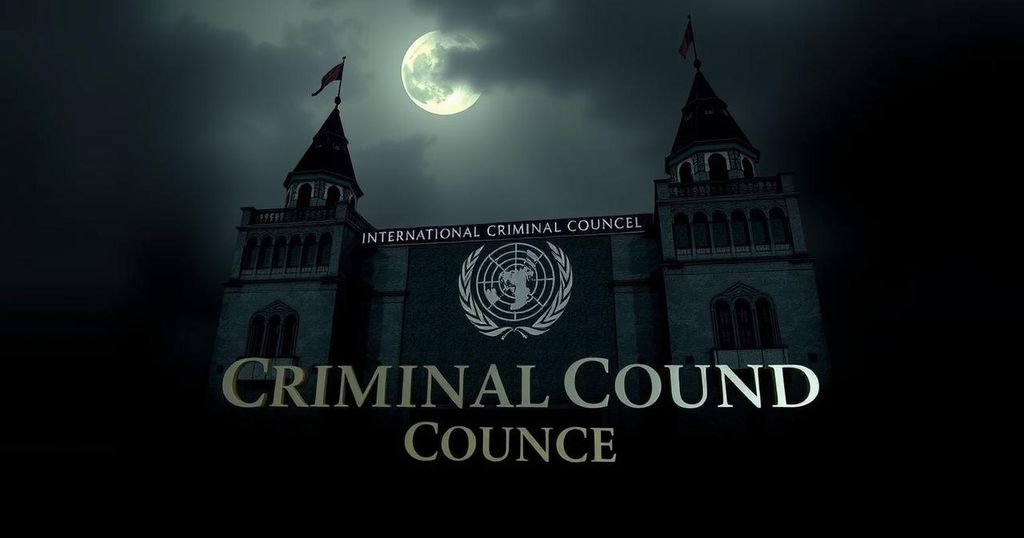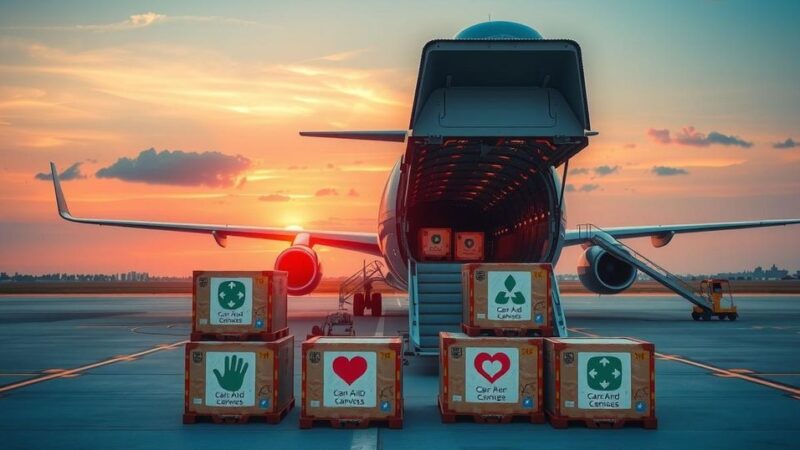On October 14, 2023, ICC prosecutor Karim A. A. Khan announced a renewed effort to investigate serious crimes in the DRC, particularly North Kivu, since January 2022, following a request from the Congolese government. The ICC has investigated human rights abuses since 2004, leading to prosecutions of former armed group leaders. Current atrocities by the M23 group underscore the necessity for accountability. The Congolese government is urged to establish a special criminal court to complement ICC efforts and combat a pervasive culture of impunity in the region.
On October 14, 2023, the prosecutor of the International Criminal Court (ICC), Mr. Karim A. A. Khan, announced an escalation of investigative efforts in the Democratic Republic of Congo (DRC), particularly concerning atrocities committed in the North Kivu province since January 2022. This renewed initiative follows the request made by the Congolese government in the previous year. The ICC has engaged in investigations regarding serious crimes within the DRC since 2004, prompted by an initial appeal from the government. These ongoing investigations have led to prosecutions against six individuals, all of whom were former leaders of armed groups. Of these, four faced trial for acts committed in Ituri province during 2002-2003, with three convicted and one acquitted. Two additional cases concerning crimes in North Kivu in 2009 have yet to proceed to trial. Human Rights Watch has persistently urged the ICC prosecutor to not only hold rebel leaders accountable for egregious violations in eastern DRC but also to address alleged crimes by senior officials from the governments of Congo, Rwanda, and Uganda. The ICC’s renewed investigative focus serves as a pivotal opportunity to tackle the alarming absence of accountability and to address the significant “impunity gap” that perpetuates grave human rights violations in regions such as North Kivu and Ituri. Violations of international humanitarian law continue unabated in the DRC. Reports from Human Rights Watch detail severe atrocities perpetrated by the M23 armed group, including the killing of civilians, widespread gang rapes, looting, and destruction of property. In 2024, the Rwandan army, in conjunction with the M23, indiscriminately shelled displacement camps and densely populated areas near Goma, North Kivu. Concurrently, the Congolese military and allied militia groups heightened the jeopardy faced by displaced populations by strategically deploying heavy artillery in vicinity of the camps. Furthermore, Congolese soldiers and allied combatants have reportedly committed numerous violations, including murder, rape, other forms of sexual violence, and arbitrary detentions aimed at displaced individuals. In light of these developments, Mr. Khan expressed his commitment to investigate all involved parties, notwithstanding the Congolese government’s request to concentrate solely on the M23 group. It is imperative for member states of the ICC to acknowledge the increased burden on the court and to extend necessary support to ensure that the ICC can fulfill its comprehensive mandate. It must be noted, however, that the ICC is a court of last resort and cannot be expected to address all issues independently. The prosecutor commended the Congolese authorities for their initiative in establishing a committee intended to form a special criminal court for the DRC. The establishment of an internationalized judicial mechanism, which would work alongside the ICC and domestic courts, is critically needed and would hopefully contribute to bridging the impunity gap. The Congolese government must expeditiously advance this initiative, with the collaborative support of the ICC and other international partners.
The Democratic Republic of Congo has been embroiled in conflict and violations of human rights for many years, with various armed groups committing atrocities against civilians. The ICC has been engaged since 2004, responding to requests from the Congolese government to investigate and prosecute individuals for severe crimes. The complexity of these cases involves not only rebel commanders but also high-ranking officials from not just Congo, but surrounding nations, which adds depth to the ongoing discussions about accountability and justice in the region. Recent developments indicate an urgent need to address these long-standing issues through effective legal mechanisms, both internationally and domestically.
The ICC’s renewed focus on crimes in the DRC, particularly in North Kivu, marks a significant step towards addressing the historic and ongoing abuses in the region. While the ICC endeavors to investigate all warring parties, it is vital for the Congolese government to complement these efforts by establishing a special criminal court, thereby addressing the impunity gap. Enhanced collaboration between the ICC, the Congolese authorities, and international partners is paramount to ensuring justice for victims and creating a sustainable framework for accountability moving forward.
Original Source: www.hrw.org







